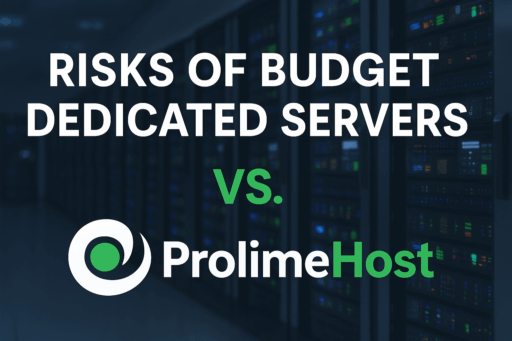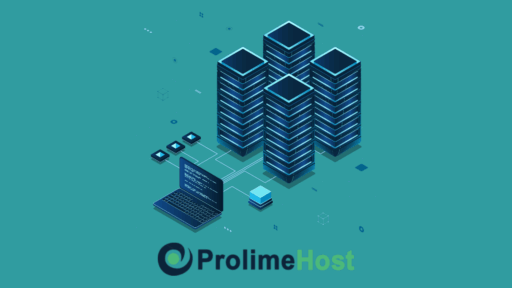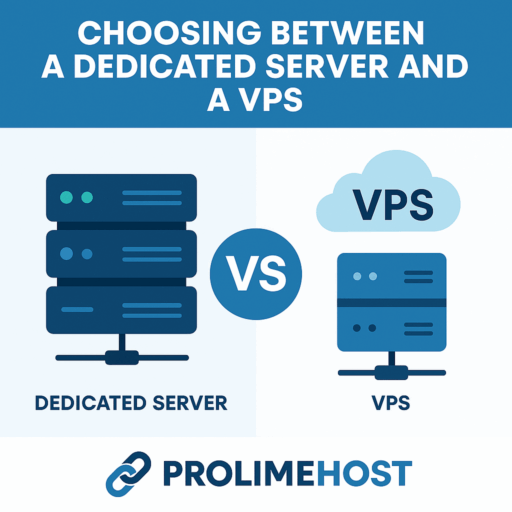
Leasing a dedicated server based solely on price from budget providers can lead to several issues, as cheaper options often cut corners on quality, support, or infrastructure. Here’s a breakdown of potential problems:
- Poor Hardware Quality:
- Low-cost providers may use outdated or refurbished hardware (e.g., older CPUs, slower HDDs instead of SSDs, or low-capacity RAM), leading to sluggish performance, frequent crashes, or hardware failures.
- Limited redundancy (e.g., no RAID or backup power supplies) increases the risk of data loss or downtime.
- Unreliable Uptime:
- Budget providers may skimp on network infrastructure, resulting in frequent outages, high latency, or packet loss due to oversubscribed networks or low-quality data centers.
- Lack of guaranteed uptime SLAs (Service Level Agreements) means no compensation or recourse for downtime.
- Inadequate Support:
- Cheap hosting often comes with limited or no 24/7 technical support. You might face long response times, inexperienced staff, or reliance on ticket-based systems with no live assistance.
- Managed services (e.g., OS updates, security patches) may be absent or extra, leaving you to handle complex issues alone.
- Security Risks:
- Budget providers may not invest in robust security, leaving servers vulnerable to DDoS attacks, malware, or unauthorized access.
- Lack of firewalls, intrusion detection, or regular security updates increases the risk of breaches.
- Limited Scalability:
- Low-cost servers often have fixed configurations with little room for upgrades (e.g., more RAM, CPU, or storage), making it hard to scale as your needs grow.
- Bandwidth caps or overage fees can lead to unexpected costs during traffic spikes.
- Hidden Costs:
- Cheap plans may exclude essential features like backups, monitoring, or control panel licenses (e.g., cPanel, Plesk), which add to the total cost.
- Poor performance may force you to invest in additional tools or services to compensate.
- Subpar Data Center Infrastructure:
- Budget providers may use lower-tier data centers with inadequate cooling, power redundancy, or physical security, increasing the risk of hardware failures or downtime.
- Geographic location may be suboptimal, leading to higher latency for your target audience.
- Lack of Customization:
- Low-cost servers often come with rigid configurations, limiting your ability to choose specific OS versions, software stacks, or hardware tailored to your workload.
- Data Integrity Risks:
- Without proper backup systems or redundant storage, you risk losing critical data due to hardware failures or human error.
- Cheap providers may not offer reliable disaster recovery options.
- Reputation and Compliance Issues:
- Budget hosts may share IP ranges with spammers or malicious users, leading to blacklisting and email delivery issues.
- Lack of compliance with standards like GDPR, HIPAA, or PCI-DSS can be problematic for businesses handling sensitive data.
Common errors on dedicated servers leased from budget providers typically stem from hardware issues, software misconfigurations, or operational challenges.
Based on available data and technical insights, here’s a breakdown of their most frequent issues:
- Hardware Failures:
- Disk Failures: Hard drives, especially HDDs, failing due to wear and tear, leading to data loss or server downtime. SSDs, while more reliable, can also fail under heavy write loads.
- RAM Issues: Faulty or insufficient RAM causing crashes, slow performance, or application errors. Memory leaks in software exacerbate this.
- Power Supply Problems: Failing power supplies or inconsistent power delivery causing unexpected shutdowns or hardware damage.
- Overheating: Poor cooling or dust buildup leading to CPU or GPU throttling, crashes, or permanent component damage.
- Network Issues:
- Connectivity Problems: Misconfigured network settings, faulty NICs, or ISP issues resulting in packet loss, high latency, or complete disconnection.
- DNS Errors: Incorrect DNS configurations making the server unreachable or causing domain-related issues.
- Bandwidth Overload: Exceeding allocated bandwidth slowing down or interrupting services, especially during traffic spikes.
- Software and Configuration Errors:
- OS Misconfigurations: Incorrect settings in Linux (e.g., Ubuntu, CentOS) or Windows Server leading to service failures, security vulnerabilities, or performance bottlenecks.
- Web Server Issues: Misconfigured Apache, Nginx, or IIS settings causing websites to fail (e.g., 500 Internal Server Error, 503 Service Unavailable).
- Database Errors: MySQL, PostgreSQL, or other database crashes due to corrupt tables, insufficient resources, or improper indexing.
- Software Bugs: Outdated or poorly coded applications crashing or consuming excessive resources, leading to server instability.
- Security-Related Issues:
- DDoS Attacks: Overwhelm servers with traffic, causing downtime or degraded performance.
- Unauthorized Access: Weak passwords, unpatched software, or misconfigured firewalls leading to brute-force attacks or exploits.
- Malware: Viruses or ransomware corrupting files, stealing resources, or locking the server.
- Resource Overload:
- CPU/Memory Overuse: Running too many processes or poorly optimized applications overly maximizing resources, causing slowdowns or crashes.
- Disk Space Exhaustion: Logs, databases, or temporary files filling up storage halting services or preventing writes.
- Backup and Recovery Failures:
- Failed Backups: Improperly configured or untested backups failing when needed, leading to data loss.
- Slow Recovery: Lack of a disaster recovery plan or slow restoration processes extending downtime.
On the other hand, ProlimeHost is a premier dedicated server web hosting provider.
ProlimeHost stands out as a premier dedicated server web hosting provider due to several key features and qualities highlighted across various sources:
- High-Performance Infrastructure: ProlimeHost uses enterprise-grade hardware, including branded servers with Xeon processors and SSD storage in RAID10 configurations, ensuring robust performance for high-traffic websites, resource-intensive applications, and sensitive data environments. Our data centers in Los Angeles, Denver, and Singapore feature advanced safety, security, redundancy, and scalability, supported by Cisco ASR 9000 routers and Noction BGP route optimizers for low-latency, high-speed connectivity.
- Customizable and Scalable Solutions: We offer tailored dedicated server solutions, allowing clients to customize storage, RAM, CPU, and operating systems to meet specific business needs. Flexible plans range from low-end to high-end enterprise servers, with seamless transitions as requirements evolve. Hybrid cloud hosting options combine dedicated servers, VPS, and cloud solutions for scalability.
- Managed Hosting Services: ProlimeHost provides fully managed hosting starting at $150/month, covering installation, configuration, optimization, security, and 24/7 monitoring. This allows businesses to focus on operations while experts handle server maintenance, backups, and security patches, reducing technical burdens.
- Reliability and Uptime: We guarantee 99.9% to 99.99% network uptime, backed by a Service Level Agreement (SLA), ensuring consistent availability for business-critical applications. Our infrastructure includes redundant power supplies, Cisco intrusion detection, and multi-layer security.
- Robust Security Features: ProlimeHost offers enterprise-grade DDoS protection (up to 20Gbps and 2 million packets per second), advanced firewalls, and proactive security measures to safeguard sensitive data. Clients are advised to maintain remote backups, with ProlimeHost offering paid backup solutions to enhance data protection.
- Exceptional Customer Support: Our 24/7 support includes a dedicated account manager, rapid response times (within 1 hour), and expert network engineers. Support options include monthly or per-ticket plans, catering to varying needs, with remote management tools like IPMI for client control.
- Cost-Effective and Transparent Pricing: Dedicated servers start at $89/month, with no hidden fees or long-term contracts. We balance affordability with high-end performance, making it accessible for small businesses and corporations alike.
- Global Reach and Data Centers: With facilities in Los Angeles, Denver, and Singapore, ProlimeHost ensures low-latency connectivity worldwide. Our Los Angeles center, located at Equinix LA3 and 800 S Hope St, optimizes routing for global markets.
- Customer-Centric Approach: Since 2008, ProlimeHost has prioritized customer satisfaction, offering tailored solutions and responsive support. Client testimonials highlight their reliability, ease of setup for novices, and hassle-free services compared to competitors.
- Advanced Control Panels: Support for popular control panels like cPanel, Plesk, and others simplifies server management, with features for email, FTP, domain, and database administration, catering to both novice and experienced users.
These factors collectively position ProlimeHost as a reliable, high-performance, and customer-focused provider, ideal for businesses needing dedicated server hosting with strong support and scalability.




